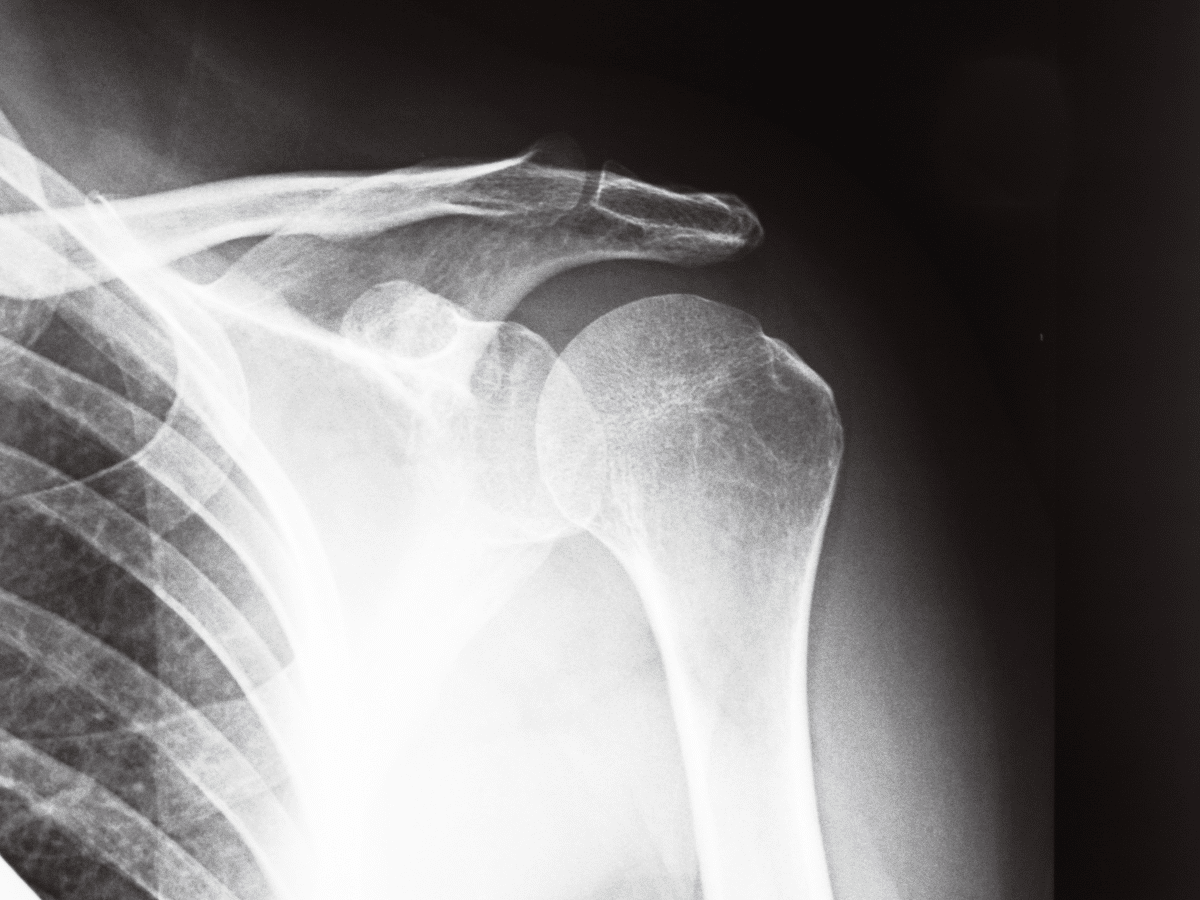Dr. Szerlip has joined forces with Austin Orthopedic Institute
Located at: 11675 Jollyville Road Suite 207, Austin, TX 78759
and 1502 Blue Ridge Dr Suite 201, Georgetown, TX 78626
Call 512-856-1000 to request an appointment.
A shoulder fracture is an injury that can cause a lot of shoulder pain. Fractures in the shoulder can significantly diminish your quality of life, making even basic daily activities seem nearly unmanageable. Read on to learn the symptoms of each type of shoulder fracture and how they can be treated.
Our board-certified orthopedic and sports medicine specialist, Dr. Benjamin Szerlip, has aided thousands in recovering from shoulder fractures, enabling them to resume an active and healthy lifestyle. Schedule an appointment at our office in Austin, Texas today!
The shoulder joint has three bones that could potentially fracture. They include the Humerus (upper arm bone), Scapula (shoulder blade), and Clavicle (collarbone). They come together to form three joints in the shoulder. They are the glenohumeral joint, the acromioclavicular joint, and the sternoclavicular joint. These joints allow a great range of motion of your arm.

A shoulder fracture refers to a broken bone in any one of the three bones that make up the shoulder. A fracture may cause pieces of your broken bone and bone fragments to come out of alignment. When this happens, the fracture is referred to as a displaced fracture. Non-displaced fractures are when the bones break but stay within proper alignment.
The most prevalent form of shoulder fracture is a clavicle fracture.
There are many possible reasons why your shoulder may fracture. The force required to fracture each bone varies.
Clavicle fractures and proximal humerus fractures can be caused by a direct blow. Common causes include falls, collisions, or motor vehicle collisions.
The scapula does not break as easily as the clavicle and proximal humerus because it is well protected by the chest and surrounding muscles. Scapula fractures usually occur in high-energy trauma injuries, such as in high-speed motor vehicle collisions. Chest injuries commonly occur at the same time as scapula fractures.
You may have fractured your shoulder if you are experiencing the following:
You are at greater risk of fracturing your shoulder if you participate in sports.
The treatment for a shoulder fracture will vary based on the type and location of the injury. Following a period of immobilization, physical therapy is typically advised to restore your shoulder’s range of motion and functionality. This is aid in your shoulder fracture repair.
The majority of clavicle fractures can be managed non-surgically.
If the fracture has broken through the skin or is severely out of place, then surgery may be necessary. During surgery, your surgeon will fix the fracture with plates, screws, or rods.
Surgery may be required if there is displacement of the bone fragments. Your surgeon will fix the fracture using plates, screws, or pins. For elderly patients, a shoulder replacement may offer more significant benefits in severe cases.
Many scapula fractures can be treated without surgery. A sling or shoulder immobilizer will be used to immobilize your shoulder. You may also take NSAIDs and apply ice to control the pain and swelling.
Surgery for a scapula fracture is very rare. You may need surgery if you have fractured the area involving the ball and socket joint or if you also have fractured your clavicle. Surgical treatment involves realigning your bones and fixing them with plates and screws.
The risks of shoulder fracture surgery are very low. Potential risks include the following:
Despite these surgical risks, there is a chance that your bones may not heal properly.

Most shoulder fractures occur during accidents and, therefore, can be difficult to prevent. Prevention includes being safety conscious around the home and while playing sports. Older ones can take measures to maintain healthy bones by keeping up their calcium and vitamin D levels.
If you suspect you have a shoulder fracture, schedule an appointment with Dr. Benjamin Szerlip in Austin, Texas. He will create a tailored approach to your treatment, helping you return to the lifestyle that you love. Contact us today to get the help you deserve!
Medically reviewed by Benjamin W. Szerlip DO
Dr. Szerlip has joined forces with Austin Orthopedic Institute
Located at: 11675 Jollyville Road Suite 207, Austin, TX 78759
and 1502 Blue Ridge Dr Suite 201, Georgetown, TX 78626
Call 512-856-1000 to request an appointment.